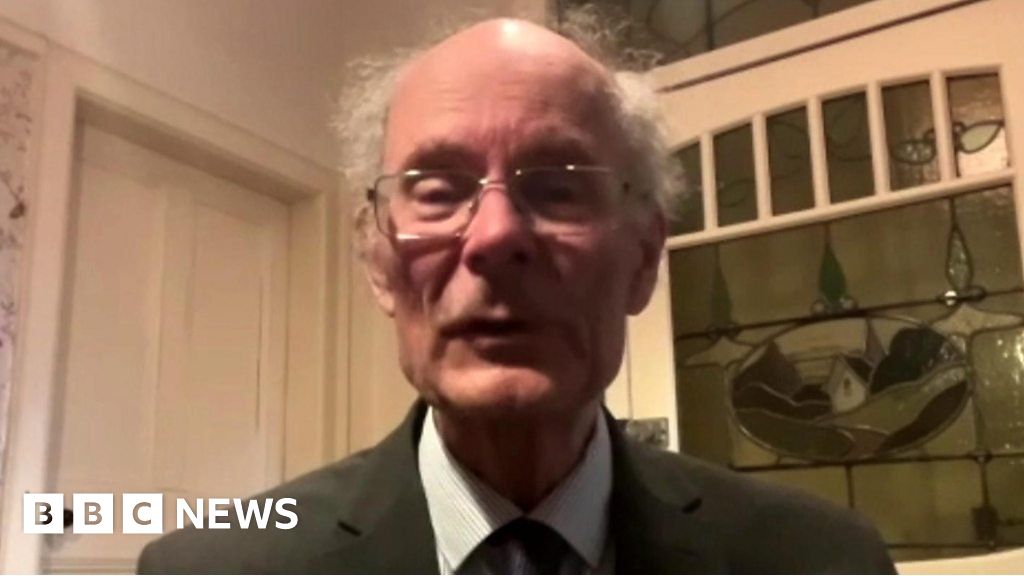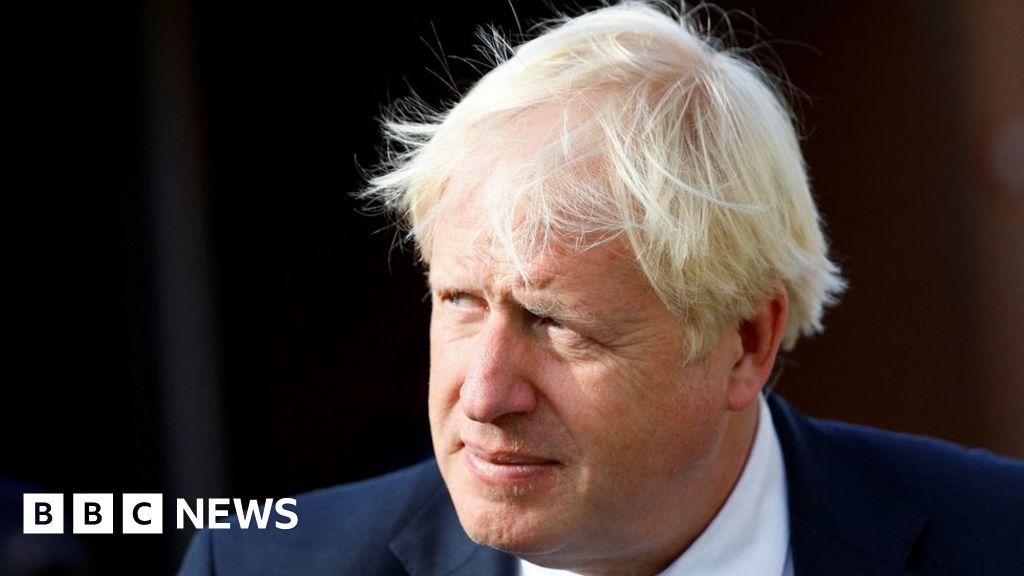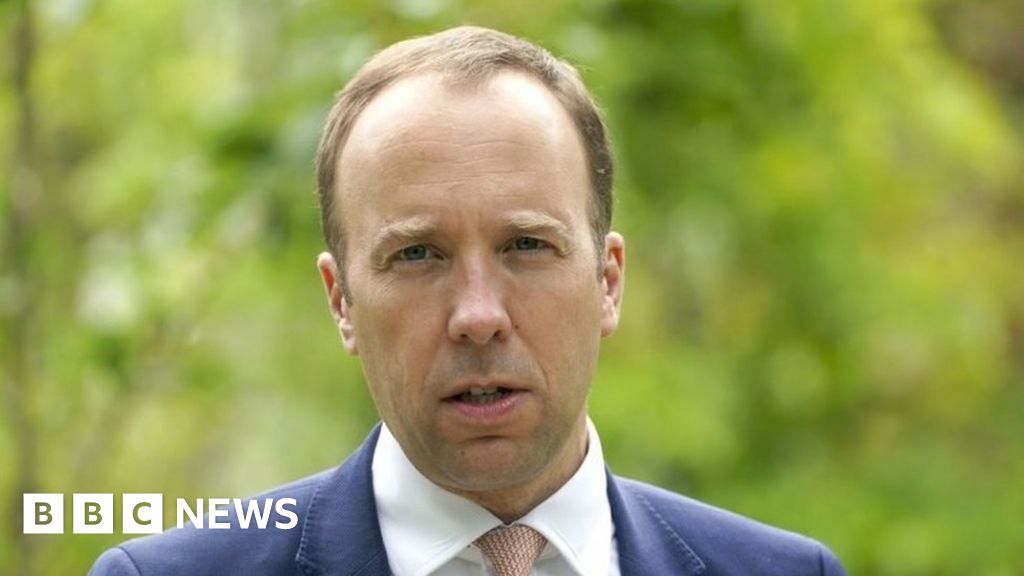Cowper’s Cut 274: Only Helen Whateley's army of imaginary friends can save us now

It's delightful to see the Government's consistent commitment to imaginary health and care reforms.
On top of the 40 New (If Fictional) Hospitals, a mid-week briefing to The Guardian meant that we got a heads-up on how "health ministers are to recruit a new volunteer army for social care to ferry medical equipment and drugs to people’s homes in a bid to free up congested hospital wards.
"Volunteers will also be sent to, though not into, people’s homes to tackle loneliness and carry out shopping and other errands".
Mmmmmmm: so that's what's been blocking up hospital wards. Who knew?
'Cut' readers will not be surprised to learn that the high-powered brain of care minister Helen Whateley is behind this.
We also learn that "members of the public will be able to sign up on the GoodSam app for roles such as “check in and chat”, which involves support over the phone for people struggling with loneliness.
"There will also be the chance to “pick up and deliver”, helping to transport medicines or small items of medical equipment to people’s homes from NHS sites so they can be discharged from hospital, and “community response” roles will involve collecting and delivering shopping and prescriptions".
One must have a heart of stone not to laugh.
Helen Whateley's army of imaginary friends are sure to do a great job of this. I mean, the Big Society was such a triumph. Professor David Oliver takes this nonsense apart in style for Byline Times.
It's starting to seem as if the drag of governing is getting the Government down, the poor dears. HSJ's Henry Anderson spotted that the Hewitt Review is not even meriting a response of its own. Instead, La Whateley will respond jointly to Hewitt's work and the Health Committee's inquiry into ICSs - promising to respond by 20th July.
Performance
To the considerable surprise of absolutely nobody, the latest NHS England performance stats show that the RTT backlog has grown to over 7.4 million. 52-week waiters were up by 3 per cent to 371,111; the number of patients waiting over 18 months was 11,477 in April (when NHSE had pledged to eliminate this cohort).
Health Service Journal analysis notes that "treatment volumes, which comprise the total of completed referral to treatment pathways for both admitted and non admitted patients, fell by 20 per cent from 1.54 million in March, to 1.22 million in April.
"The April 2023 figure is also lower than the 1.33 million procedures and appointments carried out in April 2018, and 1.36 million in April 2019 – the two corresponding months for the pre-pandemic era".
A&E performance also worsened: 113,100 12-hour waits in A&E from time of arrival in May, up from 103,480 in April. May saw around 70,000 more attendances in May, but the proportion of 12-hour waits also rose (8.6 per cent, vs 8.3 per cent in April). Performance against the four hours target was likewise worse: from 74.6 per cent in April to 74 per cent in May.
As always, Rob Findlay of Insource's analysis is a vital read. He writes, "the lion’s share of the RTT waiting list is at the outpatients and diagnostics stages of the pathway: 6.3 million out of the total 7.4 million. The net result of pre-pandemic demand, and only slightly above pre-pandemic non-admitted activity, was that this part of the waiting list grew, and ... waiting times from referral to diagnosis and decision grew accordingly.
"It is this part of the waiting list that I estimate includes 26,845 patients who have unsuspected cancer".
Institute for Fiscal Studies' health expert Ben Zaranko observed, "treatment volumes in April were down 20% on the month before, and 10% down on the same month in 2019.
"The numbers waiting a long time for treatment are also now going in the wrong direction. 371,000 waiting for more than a year in April, up from 360,000 in March, and 2,000 pre-Covid. 3.091 million waiting more than 18 weeks in April, versus 3.032 million in March, and 782,000 pre-Covid".
Zaranko concludes that "the other notable thing in today's numbers is the big drop in the number of people *joining* the waiting list: 20% fewer joiners in April than March. Patients staying away because of strikes? If it weren't for that, the overall waiting list would have soared even higher".
Emily Townsend's HSJ piece highlighted the shocking state of A&E mental health waits.
Strikes
Mr Barclay's insouciant recent appearance with Sky News' Kay Burley can be seen here, during which he claims the backlog plan is "working". Ahem.
Consultants in England will go on strike over pay on 20th and 21st July, if their ballot (clsing on 27 June) votes for taking industrial action. During the strike consultants will provide 'Christmas Day cover' - meaning they will provide emergency services only.
I’m baffled by people who consent to the narrative that the ongoing health workforce strikes over pay is a popularity contest in which the Government holds an automatic upper hand. It isn't, and they don't.
The Government has two things that it needs to do in this fight.
The first is to seem as if it is in charge of the NHS, having explicitly “taken back control” with the 2022 Act. This was An Obviously Bad Move, as I wrote at the time.
Nurses, junior and SAS doctors are all fighting or striking over pay. Consultants look pretty likely to join them. It’s been going on for months.
Does this make the Government seem in charge of the NHS?
Mmmmmmmmmmmm.
The second thing the Government wants (it’s a pledge, no less) is for NHS waiting lists to be falling.
So how’s that one going?
Ahem: see above.
Instead of viewing the Government as The Great Gatekeeper Of Right-Think, try this. The medical professions have this thing that the Government urgently needs: the ability to participate in reducing record NHS waiting lists, by working more.
But the medical professions are pissed off over pay, and ready to act on this anger.
So who’s in charge here?
For those who believe in the 'popularity contest' theory of strikes, the Ipsos Veracity Index is a good and longstanding metric of public trust. Guess which professions consistently come first and second?
I know it’s hard for some to see in The Age Of Stupid Media, but sometimes, a thing isn’t a popularity contest. Sometimes, it’s an industrial dispute.
In which the distribution of power matters.
Live by the Johnson, die by the Johnson

Moral imbecile, narcissist, chronic liar and former Prime Minister Boris Johnson decided to quit Parliament on Friday evening, before a Parliamentary review (of his lies to Parliament about Partygate) that looked certain to trigger a suspension and recall by-election decided it for him. His comically indigant self-justification is here. Uxbridge will now see a by-election for his seat.
So did former health minister Nadine Dorries, likewise causing a by-election despite claiming earlier that same day that "the last thing I would want to do would be to cause a by-election in my constituency”.
Current health minister Will Quince also announced that he is joining the Blue Chicken Run.
Meanwhile, Chancellor Jeremy Hunt will give a speech to the Centre For Policy Studies this week about the need to cut the size of the state, to free up money for tax cuts.
This will happen by raising public sector productivity and accelerating the digitisation of Government services, apparently. That'll be nice.
Hunt's people briefed the Boris Johnson Fanzine that a new 'productivity task force' "will look at how to do “more for less”, with a focus on digitisation and the use of artificial intelligence".
Digitisation AND AI: bound to work. Bound to.
The Opposition
Wes Streeting, Labour's shadow health secretary, had an effective hit at usually-smart i political editor Paul Waugh's curious write-up of Health But Social Care Secretary Steve 'The Banker' Barclay as a potential next Tory leader at this week's otherwise utterly dull Commons Health But Social Care Questions.
Paul Waugh's a huge talent, with a strong track record, and also under silly proprietorial pressure to produce copy, so we should just let this one slide. Steve Barclay is the next Tory leader in much the same way that I'm the next England Rugby Union mens' team captain.
Mr Streeting's memoir is out, and this interview about the book with Mirror political editor Mikey Smith appeared ahead of its publication.
'The financial punishment beatings will continue until morale improves'
NHS England director of finance Julian Kelly told Health Service Journal that the financial punishment beatings will continue until morale improves.
OK: he wasn't quite that clear. He did say that "we cannot ask providers to do any more on efficiency", and declared that he has “more confidence” in this year’s financial plans, as one in three ICSs warn of deficits.
Kelly also told HSJ that he is not holding back cash centrally to meet any further overspends; and expects “a lot more” integrated care systems to hit their spending plans in the current year than in the past.
Given NHSE's previously-discussed pressure on ICSs to submit fictional financial plans for 2023-24, it will be interesting to see if Mr Kelly is lying about not holding money back: that (on top of copious capital-to-revenue transfers) is pretty much the only thing that has prevented embarrassing DEL breaches in the past decade.
The Pritchard Dilemma
As those who are going to ConfedExpo this week make their way to Manchester, they may well ponder The Pritchard Dilemma.
The leadership of the service has largely worked out that NHS England chief executive in name Amanda Pritchard is spending most of her time acting as a firewall between them and the shouting and foot-stamping antics of HBSC Secretary Steve 'The Banker' Barclay.
They seem less sure that this 'firewall' is helping much.
The obvious political subjugation of NHSE by the SOS 'taking back control' that I wrote about when I published the leak of the White Paper that became the 2022 Act has been followed with wearying inevitability by physical co-location of the DHBSC managerial and political leadership and that of NHSE.
And the result of this change has been a Performance Triumph ... oh.
In July 2021, I wrote of the three remaining candidates to be next NHSE CE (Pritchard, Britnell and O'Riordan) that "none of these candidates should be applying if they think their career cannot survive the high probability of very publicly a) needing to resign, or b) being sacked. Those are the two probable outcomes to taking over at NHS England - both now, and for the foreseeable future.
"Given the scale of the backlog, there's insufficient time to deliver a meaningful performance recovery before the latest possible date for the next General Election.
"Furthermore, there is Covid19 that the Government can cite as a reason for the NHS backlogs.
"That is mostly nonsense, of course, as the data shows. Covid has made matters worse, but they were already very bad. The Health Foundation showed that "before the pandemic, meeting the 18-week standard would have required the NHS to treat an additional 500,000 patients a year for the next 4 years – an unprecedented increase in activity, which looked unrealistic before COVID-19 and looks even harder now".
"Like I say, nonsense. But this current Government's relationship with the truth is far more than socially distanced: the truth is something that happens to other people.
"So they will try any lie going.
"The danger is that the incurious average of people may fall for it.
"So, were I any of those three candidates, I'd be keenly aware that the likelihood of getting the resources to sort out the backlog problem that's been many years in the making is slim. (There will be some extra resource, but very unlikely enough.)
"That leaves it wide open for the Government to say, 'well, we put in the extra money, and the service didn't deliver, so I'm afraid we'll have to replace the person at the top'."
July 2021, as I say. Despite her deference to the new legislation, Ms Pritchard is now approaching peak vulnerability to being personally blamed, briefed against and then sacked - to allow the Government to try a blame narrative to distract attention from their decade-and-a-half of utter political failure on the NHS.
The Government have August as the latest point at which they could concede to strikers' demands and see any change in activity before winter starts to do its thing to the system. August could work, given that it's 'The Silly Season' - when the national political media are paying even less attention than usual.
Revisiting the pandemic

Lord Bethell, the Tory peer whose WhatsApp messages and phone were the subject of controversy over the awarding of VIP fast-lane contracts (which 'Cut' covered at the time) and who had been involved in contract lobbying before that, had a totally normal line of argument for his BBC News interview on Monday morning.
Firstly, the erstwhile Ministry Of Sound supremo claimed that ministers' and advisers' WhatsApp messages weren't important, because they were mainly about who had which coffee in meetings. Then, Lord Bethell asserted that WhatsApps had been terribbly important to how quickly pandemic leaders had been able to make vitally important decisions.
Yes, it does make such clear sense.
The WhatsApps argument is, as Professor Colin Talbot has shown, absurd: clear guidance states that even if you are using private email or WhatsApp, if it Government commumications, then it belongs to the Government.
The Boris Johnsn Fanzine features unsurprisingly uncritical coverage of a policy critique of lockdown from research published in a book by right-wing libertarian TuftonStrasse think-tank the Institute of Economic Affairs.
The researchers claim that their meta-analysis of studies estimated that, across Europe, lockdowns “resulted in 6,000 to 23,000 deaths avoided”.
“To put those numbers into context, during an average flu season, approximately 72,000 deaths are recorded in Europe ... our results made clear that lockdowns had negligible public health effects when measured by mortality".
Mmmmmmmmmm. People far more au fait with research methodologies than I am are likely to have a rurality of field days with this implausible-seeming conclusion. But certainly, the BJF's journalism is up to its usual high standards, claiming that "There are more than 7 million people waiting for hospital appointments, a record with the numbers double what they were in March 2020."
The choice of March data is particularly weird because
The waiting list in January 2020 was 4.4 million: it is currently 7.4 million.
The Alan comeuppance

EveryGrifter
Merch-vending, privatisation-fictionalising buffoon private company EveryGrifter are employing an extra member of staff in the last tax year for which they have filed accounts: taking them up to four from three.
As well as this, £70,000 seems to have been dropped on something. A nice pay rise for all the directors, perhaps? We’ll never know.
Recommended and requited reading
Steve Black's latest HSJ 'Mythbuster' column takes on the causes of NHS deficits.
Interesting analysis by the New Statesman's Ben Walker of what can be learned from the swings in local election voting, and how it may affect national swings for the General Election.
Sam Freedman's latest Substack post on why the Cabinet Secretary can't cope is a very informative read.
New IPPR report talks about 10,000 'missing managers'.
Concerning FT story about shortages of cancer medicines in the USA.
Tony Hockley and colleagues' new book 'Behavioural Incentive Design for Health Policy: Steering for Health' looks worth reading.
Good blog by Richard Taunt of Kaleidescope on developing strategy, and why the process really matters.
The FT have a useful set of articles on the Labour leadership.
